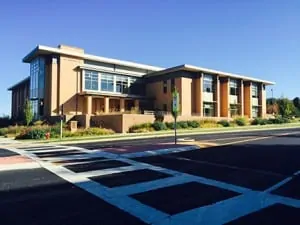

The Pennsylvania Independent Oil & Gas Association (PIOGA) is hosting its 2024 Spring Meeting at Rivers Casino in Pittsburg, Pennsylvania. This year’s event theme, “Climate, Commodities, and Chaos: Threats to a Strong U.S. Energy Game Plan,” will explore topics concerning changes in the oil and gas industry, including regulatory updates, consumer preferences, and market sentiment. The agenda features an oil and gas producers’ roundtable on navigating risks in energy development, regulatory updates, and a post-meeting cocktail reception where attendees and exhibitors can network with each other.
Registration is open to PIOGA members and non-members, with special pricing for students. Register today!
Under section 211 of the Clean Air Act, the Environmental Protection Agency (EPA) is required to set renewable fuel percentage standards every year, including for cellulosic biofuel, biomass-based diesel, advanced biofuel, and total renewable fuel. In November the EPA established the 2017 standards, which will apply to all motor vehicle gasoline and diesel produced or imported in the year 2017. Most biogas produced qualifies as Advanced Cellulosic Biofuels, or the D3 category, which is the same as cellulosic (non-corn) ethanol. For the last several years, nearly 95% of the advanced cellulosic fuel generated has been from digester and landfill biogas, not cellulosic ethanol.
The final rule also establishes the four percentage standards applicable to producers and importers of gasoline and diesel, based on volume requirements. Renewable Fuel Volumetric Obligations (RVOs) are expected to continue driving the market to overcome constraints in the renewable fuel distribution infrastructure. This, in turn, could lead to substantial growth over time in the production and use of renewable fuels. If a renewable fuel-producing project uses a Renewable Fuel Standard (RFS)-approved pathway and is registered with EPA, the project can generate credits that can be sold to produce additional revenue. The value of these Renewable Identification Numbers (RINs) credits fluctuates based on market supply and demand.
The 2017 RVOs finalized in November for 2017 will help drive the market demand for these credits. Producers of biogas want the demand for RVO to be higher than the supply of biogas that will actually be produced and used as vehicle fuel during the year. This will protect the value of RINs, encouraging revenues for biogas-vehicle fuel projects and financing for new projects. Digester and landfill biogas normally have the highest value of all RINs.
Overall, EPA’s 2017 standards recognize the important role that biogas plays among all advanced biofuel producers, including cellulosic ethanol, and the role biogas will continue to play for generating renewable fuel for US vehicles.
SCS Engineers’ National Experts are available to answer your questions about the impact of the 2017 standards on your business and current and potential projects. Click here to contact SCS.
“Even the best-designed, -built, and -maintained buildings waste energy. In fact, virtually all heating, ventilation, and air conditioning (HVAC) equipment, lighting, and building automation systems (BAS) compromise efficiency. Regardless of age, buildings over 50,000 square feet can benefit from a process called retro-commissioning (RCx),” writes Sam Cooke of SCS Engineers in Public Works Magazine.

Read the article: Public Works Magazine December 2015, print issue and online.
SCS Services offered to municipalities, hospitals, manufacturers, and businesses.